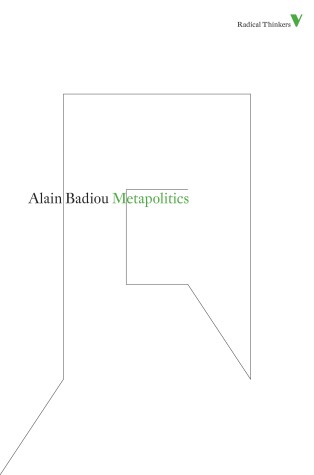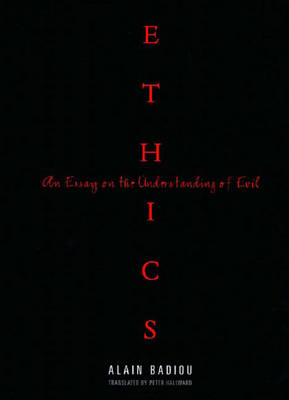Radical Thinkers
2 total works
Badiou indicts this approach, which reduces politics to a matter of opinion, thus eliminating any of its truly radical and emancipatory possibilities. Against this intellectual tradition, Badiou proposes instead the consideration of politics in terms of the production of truth and the affirmation of equality. He demands that the question of a possible “political truth” be separated from any notion of consensus or public opinion, and that political action be rethought in terms of the complex process that binds discussion to decision. Starting from this analysis, Badiou critically examines the thought of anthropologist and political theorist Sylvain Lazarus, Jacques Ranciere’s writings on workers’ history and democratic dissensus, the role of the subject in Althusser, as well as the concept of democracy and the link between truth and justice.
Ethical questions dominate current political and academic agendas. While government think-tanks ponder the dilemmas of bio-ethics, medical ethics and professional ethics, respect for human rights and reverence for the Other have become matters of broad consensus. Alain Badiou, one of the most powerful voices in contemporary French philosophy, explodes the facile assumptions behind this recent ethical turn. He shows how our prevailing ethical principles serve ultimately to reinforce an ideology of the status quo, and fail to provide a framework for an effective understanding of the concept of evil. Our consensual ethical norms amount to nothing more than a jumbled confusion of legalistic formalism, scandalised opinion, and theological mystification. By contrast, Badiou summons up an "ethic of truths" which is designed both to sustain and inspire a disciplined, subjective adherence to a militant cause (be it political or scientific, artistic or romantic), and to discern a finely demarcated zone of application for the concept of evil.
He defends an effectively super-human integrity over the respect for merely human rights, asserts a partisan universality over the negotiation of merely particular interests, and appeals to an "immortal" value beyond the protection of mortal privileges.
He defends an effectively super-human integrity over the respect for merely human rights, asserts a partisan universality over the negotiation of merely particular interests, and appeals to an "immortal" value beyond the protection of mortal privileges.

